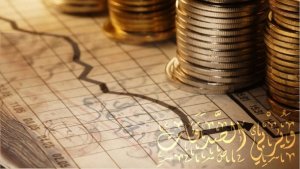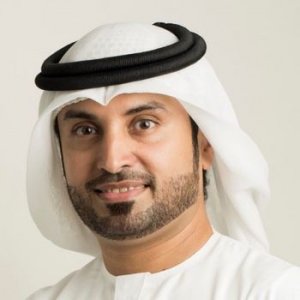2022 Islamic Finance recap: as the space continues to evolve, blockchain stands to play a big part
Despite the global economy being ravaged by turmoil induced by the Covid-19 pandemic over the last couple of years, the Islamic finance industry has emerged relatively unscathed

It has even registered double-digit growth of 10.6% in 2020.
What’s even more striking is that the industry is expected to continue growing in the near-to-mid term, even as the macroeconomic climate worsens, especially across Europe and the Americas.
The Islamic finance sector is currently estimated to be worth a staggering $2.3T — serving the needs of nearly 1/4th of the world’s population. Yet there is ample data to suggest that the Middle East, Africa, and South Asia (MEASA) region will continue to drive the even further growth of this space for the foreseeable future. To this point, the global value of Sukuk issuances — Islamic bonds structured to generate returns for investors without infringing Islamic law — has witnessed steady growth.
Studies estimate that the dissemination of these offerings will rise at a compound annual rate of 6.8 percent over the next five years, reaching a total valuation of $257B from its 2021 levels of approx. $196B. The reason for that rise, in large part, is that an increasing number of major corporations and regional governments continue to tap into the Islamic finance ecosystem to satiate their economic needs.
The past and present of Islamic finance analyzed
It is worth noting that when compared with 2019’s recorded growth of 17.3%, the Islamic finance industry expanded by approximately 11% last year. Yet, the extraordinary expansion witnessed back in 2019 was driven primarily by higher-than-expected Sukuk issuance. 2022 Sukuk issuance numbers are back to expected levels; still, it is now estimated that the industry will record a growth ratio of 10%-12% by the end of the ongoing financial year.
In addition to the growth of Sukuk-based finance, experts also believe that Takaful — an Islamic insurance scheme where participants contribute money into a pool system to guarantee each other against loss or damage — and the fund sector will also experience substantial growth in the near term. To this point, 2022 could see the Takaful market expanding at 5%-10%, while the fund industry will also experience an increasing amount of growth as investors continue to pursue high yields.
That said, Islamic finance has yet to unlock many untapped novel opportunities (such as halal blockchains, sharia-compliant cryptocurrencies, etc.) to increase its share of sustainable finance activity. The transparency of decentralized ledgers (which lie at the heart of all blockchain systems) affords Islamic crypto investors the power to ascertain whether or not their capital has gone into assets permissible by Islam.
Compliance with the Shariah financial laws and Fatwa from religious authorities, paired with the project’s robust technological backbone, position it to not only become more used globally but also to help expand the Islamic finance ecosystem at large. In particular, these projects stand to experience significant growth in countries with large unbanked populations, especially ones housing majority Muslim members (such as Nigeria and Indonesia).
One of the fastest-growing Islamic crypto tools is Haqq — a halal-compliant, application-specific blockchain built on the Cosmos SDK. Haqq and its native crypto asset, Islamic Coin, serve as examples of how application-specific blockchains and Web3 can promote the community values of a religious or ethnic group.
As a result, offerings such as Islamic Coin can potentially take on Bitcoin’s original mission — banking the unbanked, removing unnecessary intermediaries, and ensuring the inclusiveness of both builders and users of financial services worldwide, while adhering to Islamic principles.
Dr. Mohamed Damak, senior director & global head at S&P Global Ratings, believes that increased digitalization and fintech-based collaborations could help strengthen the industry and open new avenues for growth. As he puts it:
“COVID-19 has demonstrated how the capacity of a company or a bank to shift its business online is critical for its continuity. In our opinion, accessing bank services digitally, issuing Sukuk on a digital platform using blockchain technology, and enhancing cyber security will be the three main factors to help improve the industry’s resilience.”
What lies ahead for the Islamic finance sector?
As more people continue to gravitate towards decentralized technologies, it is reasonable to assume that over the coming year, the Islamic world will witness the creation of a unified global legal and regulatory framework.
Furthermore, the Halal finance industry experts believe there will be an increased issuance of dedicated social Islamic finance instruments and green Sukuk. More and more investors continue to align their views with environmental, social, and governance (ESG) values. And lastly, as Shariah-compliant digital currencies continue to gain traction, more and more Muslim investors will likely gravitate toward using crypto.
To this point, blockchain can not only uphold the values and principles of Islamic finance but also create new digital financing opportunities for the entire community. Leading authorities in Islamic finance and scholars have issued a Fatwa clearly stating that they have ‘no objection’ to Sharia-compliant blockchain projects. That had previously been a massive bone of contention regarding the use of crypto within the world of Islamic economics.
It will be interesting to see how this space continues to evolve from here on out, especially as the ongoing trend of financial digitization musters increasing global traction.
Author:
 Mohammed AlKaff AlHashmi
Mohammed AlKaff AlHashmi
Mohammed AlKaff AlHashmi has 10+ years of experience in Computer Science & Engineering, with a focus on Industry 4.0, artificial intelligence, machine learning, industrial automation, and IoT. He is an entrepreneur with a series of cutting-edge tech initiatives and the Founded Islamic Coin: a currency dedicated to empowering an ethics-first Shariah-compliant financial ecosystem.









